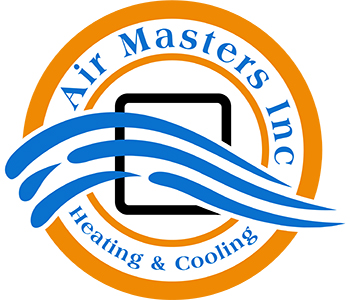Purchasing your first home is an exhilarating experience. You’re likely juggling a dozen things or more about making the right choice. We believe that understanding your future HVAC system is vital. The property’s HVAC system represents a significant investment and source of potential long-term costs, illustrating why a detailed inspection helps all first-time homebuyers.
In this guide, we’ll share seven tips for discovering all there is to know about a home’s heating and cooling setup. And if you want a deeper opinion from the experts, feel free to call Air Masters Heating & Cooling. Our experienced team can share details about your options with industry insights you won’t find elsewhere.
1. Which Kind of HVAC System Does the Home Use?
Start by identifying what type of HVAC system the home includes. Furnaces generally last longer than air conditioners, and newer types of HVAC products like heat pumps boast average life spans that are impressively long. Knowing the make and specific model gives you a much better sense of how much routine maintenance it might need.
2. How Old Is the Current HVAC System?
It’s just as smart to learn how old the HVAC system is when you’re looking at a new home. On average, HVAC systems last about 10-12 years. Having the knowledge of when it was installed helps you prepare for any needed servicing or when it might eventually stop working. Older systems are more prone to problems, so budgeting for a replacement unit could be necessary sooner than you thought.
3. Is the Warranty Still in Effect?
Check if the HVAC system is still under warranty. If it is, that’s great news because it can lower maintenance costs. HVAC warranties typically include parts and labor, but it’s important to note that details will vary. Make sure you go over any terms that aren’t familiar to ensure you understand your coverage and the likelihood of out-of-pocket costs.
4. When Was the Last Time It Received Maintenance?
Don’t forget to check the maintenance history of the HVAC system, if the records are available. This service history can reveal if there have been regular problems or how often maintenance is performed. Inquire about key tasks like filter changes, which can indicate it received regularly scheduled tune-ups.
5. What Are the Energy Efficiency Ratings?
Finding a home that features an HVAC system with great energy efficiency isn’t just smart; it leads to lower utility bills and a smaller environmental impact. Try and find the seasonal energy efficiency ratio (SEER) ratings for air conditioning and the annual fuel utilization efficiency (AFUE) for furnaces. The higher the SEER rating, the more efficient the cooling over the whole season, while higher AFUE ratings mean the fuel is efficiently converted into useable heat.
6. Did You See Any Problems After Completing an Informal Inspection?
Even without the know-how of an HVAC technician, you should still check out the HVAC system yourself. Watch closely for signs of problems that might have been overlooked. This might consist of odd sounds, unequal airflow and attempts at concealing any serious damage.
7. Have You Asked Your Local HVAC Professional?
If you’re not quite sure about the condition of the HVAC system, it’s never a bad idea to get an assessment and recommendation from trained HVAC professionals. They are skilled at identifying things you might miss, including leaks in the refrigerant, damage to the wiring or damaged ductwork.
A Consultation with Air Masters Heating & Cooling Simplifies Your Home-Buying Journey
Choosing your first home should be thrilling, and Air Masters Heating & Cooling will do everything possible to ensure it stays that way. Get in touch with us at 360-205-7115. We can talk about how our HVAC services ease your mind, giving you what you need to dive into home-ownership with confidence.

